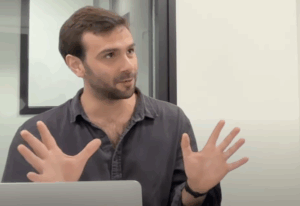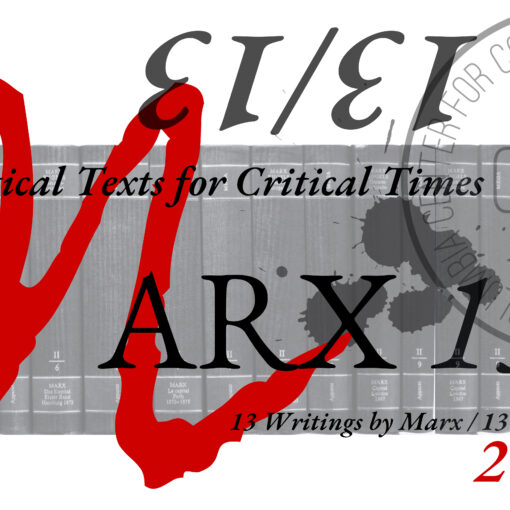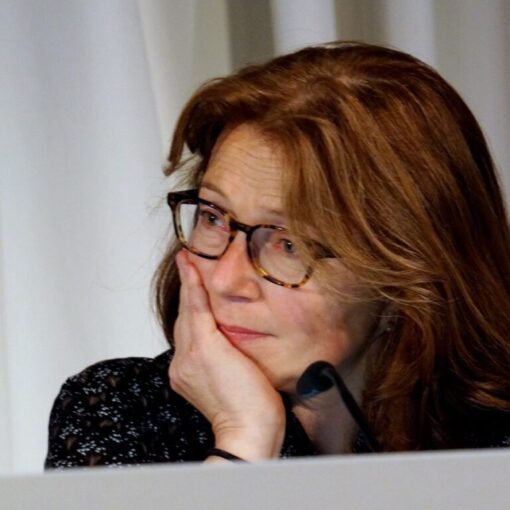
By Matteo Polleri
This dialogue has been extremely rich and insightful. The idea of “concentric circles” of oppression and liberation that Bernard introduced is a compelling image for grasping Foucault’s expansion of both Marx’s critique of capital and his understanding of “class struggle.” Indeed, when it comes to the conceptual conundrums surrounding the Marx-Foucault relationship, what is at stake is the very possibility for critical thought to intertwine the “critique of political economy” inspired by Marx and the “analytics of powers” opened by Foucault. At the core of this are issues that necessarily arise when different critical notions and political practices are brought together, such as those related to Marx and Foucault, which partially which partially overlap today with the divisions between Marxist and intersectional frameworks, struggles against worker’s exploitation and struggles against the matrix of dominations articulating racial, sexual and gender oppression. How can we think of the multiplicity and relative autonomy of power relations while maintaining the unity of capitalism as a unitary and relatively homogeneous mechanism of class domination? Is it possible to develop a critical theory of capitalism that does not treat the powers and norms that subjugate individuals as phenomena subordinated to the economic realm but as constitutive functions of the mode of production? These are the questions we are confronted with when we read together Marx’s and Foucault’s writings.
It is within this horizon that I read the surprising reference in Foucault’s lectures of the early 1970s to the Marxian theory of “surplus value.” At that time, Foucault does not merely flirt with the vocabulary of Capital volume 1 but proposes instead to expand the Marxian theory of capitalist exploitation by analyzing the techniques of power that constitute proletarians as productive—and thus exploitable—subjects. According to Foucault, no “surplus value” is possible without a different yet complementary surplus: the one ensured by the operations of power that produce labor power as a “natural” capacity. Foucault also argues that the “surplus-power” (plus-pouvoir) that makes “surplus value” possible is not identical to the sovereign power of the state. It is not a “super-power,” a force that transcends the economic realm, but rather a “sub-power” (sous-pouvoir) that underlies the social relations of production.
The analysis of this capitalist “surplus-power” leads us to the second face of what I call the “Marxist heresy” that traverses Foucault’s works at the time. In the first half of the 1970s, Foucault does not abandon the concept of “class struggle,” but rather reformulates it creatively. This creative use refers to a specific variant of the Marxian discourse: the conflictual conception of history that Marx and Engels present as early as the Communist Manifesto (1848)—the idea that, since the dawn of time, the social body has been crossed by an undeclared “civil war” of low or high intensity depending on the historical conjuncture. In Foucault, the conflict between the prison system and what he calls the “illegalisms” (illégalismes) proves that the “disciplinary society” internalizes the antagonisms of the capitalist mode of production. In this way, he expands the concept of “class struggle,” multiplying its fields, its practices, and its dynamics. First, if capital requires a plurality of power techniques to produce docile and productive individuals, this demonstrates that class struggle exceeds the factory and extents into multiple relations and practices. Second, if such techniques of power are diverse and variegated, the proletariat is no longer reducible to waged workers alone but extends to a highly heterogeneous multitude of social figures. Third, if class struggle is not limited to the workspace but also unfolds through multiple social practices, it concerns the material constitution of the subject as such. The class struggle thus enters the field of “production of subjectivity”—where the “concentric circles of race, gender, sexuality, migration, and more” evoked by Bernard play a crucial and even constitutive role.




